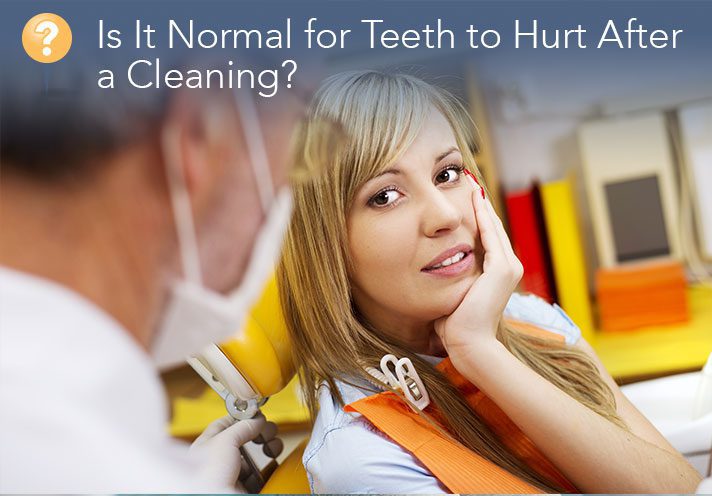Teeth Hurt After Cleaning: Relief Guide

The feeling of fresh, clean teeth after a dental cleaning is one of the most satisfying sensations, but for some, it can be followed by an unexpected and unwelcome surprise: tooth sensitivity or pain. If you’re experiencing teeth hurt after cleaning, you’re not alone. This phenomenon is more common than you might think, and there are several reasons why it happens. In this comprehensive guide, we’ll delve into the possible causes, explore the different types of discomfort you might experience, and most importantly, provide you with a roadmap to relief.
Understanding the Causes
To address the issue of teeth hurting after a cleaning effectively, it’s crucial to understand why it happens in the first place. Several factors can contribute to this sensitivity:
- Gingivitis or Gum Disease: If your gums are inflamed or you have gum disease, cleaning can irritate the gums further, leading to sensitivity.
- Tooth Decay or Cracks: Teeth that are decayed or cracked can become more sensitive after a cleaning, especially if the decay or crack is significant enough to expose the dentin or pulp.
- Recession of the Gums: When gums recede, they expose more of the tooth, including the roots, which can be highly sensitive.
- Tooth Enamel Erosion: The enamel is the protective outer layer of the teeth. If it’s eroded, either due to acid wear, grinding, or other factors, the teeth can become sensitive.
- Overly Aggressive Cleaning Techniques: While professional cleanings are generally safe, overly aggressive techniques or the use of tools that are too harsh can damage the gums or tooth enamel, leading to sensitivity.
Types of Discomfort
The discomfort or sensitivity after a dental cleaning can manifest in various ways:
- Sharp Pain: This can occur when eating or drinking something hot or cold, or even when breathing in cold air.
- Dull Ache: A persistent, dull ache that can be felt in the teeth or gums.
- Tenderness to the Touch: The gums or teeth might feel tender or sensitive to the touch.
Relief Strategies
Fortunately, there are several strategies to find relief from teeth hurt after cleaning:
Immediate Actions
- Desensitizing Toothpaste: Start using a desensitizing toothpaste. These toothpastes contain ingredients like potassium nitrate that help block the dentinal tubules in the teeth, reducing sensitivity.
- Saltwater Rinses: Rinsing your mouth with warm salt water several times a day can help reduce swelling and kill bacteria.
- Over-the-Counter Pain Relievers: For temporary relief, over-the-counter pain relievers like ibuprofen or acetaminophen can help manage pain and inflammation.
Professional Solutions
- Fluoride Treatments: Your dentist can apply a fluoride varnish to help strengthen tooth enamel and reduce sensitivity.
- Dental Bonding: If a tooth is cracked, dental bonding can help seal the tooth and reduce sensitivity.
- Gum Grafting: For advanced gum recession, a gum graft can help cover exposed roots and reduce sensitivity.
Home Remedies
- Aloe Vera Gel: Applying aloe vera gel to the affected area can help soothe and calm the gums and teeth.
- Turmeric Paste: Turmeric contains curcumin, which has anti-inflammatory properties. Making a paste with turmeric and applying it to the teeth can help reduce inflammation and pain.
Prevention is Key
While there are effective relief strategies, preventing sensitivity from occurring in the first place is always the best approach:
- Regular Dental Check-Ups: Regular cleanings can help prevent the buildup of plaque and tartar, reducing the risk of sensitivity.
- Good Oral Hygiene: Brushing your teeth at least twice a day with a fluoride toothpaste and flossing once a day can help keep your teeth and gums healthy.
- Soft-Bristled Toothbrush: Using a soft-bristled toothbrush can help prevent gum recession and enamel wear.
- Dietary Changes: Avoiding or reducing acidic foods and drinks can help prevent enamel erosion.
Conclusion
Experiencing teeth hurt after cleaning can be distressing, but understanding the causes and knowing the available relief strategies can make a significant difference. Whether through professional treatments, home remedies, or simple dietary adjustments, there are many ways to alleviate sensitivity and prevent it from occurring in the future. Remember, if your discomfort persists or worsens, consulting your dentist is the best course of action. They can provide a personalized approach to addressing your specific needs and ensuring the health and comfort of your teeth and gums.
How long does tooth sensitivity last after a dental cleaning?
+Tooth sensitivity after a dental cleaning is usually temporary and can last from a few days to a week. However, if the sensitivity persists or worsens, it’s important to consult your dentist to identify and address any underlying issues.
Can I use desensitizing toothpaste before a dental cleaning to prevent sensitivity?
+Yes, using a desensitizing toothpaste before a dental cleaning can help reduce the risk of sensitivity. However, it’s also beneficial to continue using it after the cleaning as directed by your dentist for optimal results.
What can I eat or drink to help soothe sensitive teeth?
+Eating or drinking items that are gentle on the teeth, such as soft foods, lukewarm beverages, and avoiding anything too hot or cold can help soothe sensitive teeth. Additionally, foods rich in calcium and vitamins can help promote oral health.
